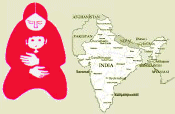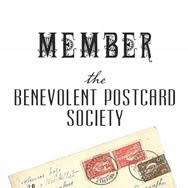Donald Marshall, the Mi’kmaq man best known to most Canadians as having spent 11 years behind bars for a crime he did not commit, has died at the age of 55.
Donald Marshall was convicted of the murder of his acquaintance Sandy Seale in 1971 during a mugging gone wrong and sentenced to life in prison. In 1983, a witness came forward who stated that he had seen another man stab Seale. In the original “rush to justice” the police had determined that, although Roy Ebsary, the intended mugging victim had a knife, Marshall had for some unknown reason turned on Seale and murdered him. As it was later shown, Ebsary had stabbed Seale which resulted in his death.
The presiding judge at Marshall’s appeal, although overturning the original conviction, blamed Marshall for his own conviction, despite the fact that the Crown had failed to turn over evidence and reveal facts (such as contradictory information from witnesses and coerced statements) which would have cleared him and pointed to Ebsary.
It was as a result of the findings (seven volumes worth) of the 1989 Royal Commission looking into the wrongful conviction that Canada changed the rules on the disclosure of evidence. Evidence collected by both Prosecution and Defence must be shared between them. It found that Marshall had been the victim of racism and pointed to significant failures by both the Crown and the Defnece which led to his conviction.
As the CBC put it “The name Donald Marshall is almost synonymous with ‘wrongful conviction’ and the fight for native justice in Canada.”
In later years, Marshall petitioned the Crown over Native fishing rights, in a case R. vs. Marshall (1999). Two landmark decisions resulted from that case. The first (R. v. Marshall, [1999] 3 S.C.R. 456) found that the right of Native fishers catching and selling of eels was valid under 1760 and 1761 treaties between the aboriginals and the colonial government, and that any licensing system or regulatory prohibitions would infringe the treaty right. The second seemed to retreat from the original finding by deciding that Natives are still subject to Canadian law.
This first finding angered non-Aboriginal fishers because they saw a bias in the law which gave Aboriginal fishers rights that they did not have (despite the fact that Aboriginal fisheries are minuscule operations compared to those operated my non-Aboriginals).
The second finding angered Native fishers because it seemed to undermine the findings of the first findings.
In 2003, Donald Marshall had a lung transplant. It was problems arising from the anti-rejection drugs that led to his death, today.
I had the pleasure of meeting Mr. Marshall in Ottawa during the National Aboriginal Day celebrations in 1998.





